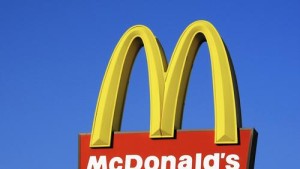As the stench of backed-up sewage permeated the restaurant, a West Philadelphia McDonald’s continued selling Big Macs, Quarter Pounders, and fries over four days last fall, installing porta-potties in the parking lot but never notifying the city, which would have ordered a closure.
 A complaint led the Philadelphia Department of Public Health to dispatch an inspector to the franchise at 52d Street and Columbia Avenue on Sept. 15. She found ruptured plumbing in both restrooms and “smelled sewage throughout the facility.”
A complaint led the Philadelphia Department of Public Health to dispatch an inspector to the franchise at 52d Street and Columbia Avenue on Sept. 15. She found ruptured plumbing in both restrooms and “smelled sewage throughout the facility.”
“The Person in Charge failed to notify the Department of an imminent health hazard and cease operations. Establishment has been operating with raw sewage backup for at least 4 days,” La’Sandra Malone-Mesfin wrote in her report. She listed 24 violations, four of which were related to the plumbing.
There is no evidence that any customers or employees got sick, although most cases of foodborne illness go unreported nationwide.
Raw sewage in a restaurant is “a very high-risk situation,” said Caroline Johnson, disease-control director for the city health department, who was talking generally.
“By design, a sewage line removes the nastiest, filthiest things from a food establishment,” said Janice Buchanon, an official at Steritech, a national brand-protection company that specializes in food safety. A common component, she said, would be E. coli O157, which can cause serious illness and lead to kidney failure in children.
“That the restaurant would continue to operate for even one day is beyond belief,” she said.
Four days after the restaurant was closed, a follow-up inspection by the city found that the plumbing was working, and management was given the go-ahead to reopen.
The city took no further action.
“We do not impose fines or penalties, and we do not have the authority to do so,” said Jeff Moran, spokesman for the city health department.
“Most health departments use closure of a facility as the most punitive action they can take,” said Buchanon, the Steritech official, who formerly worked as a restaurant inspector in various cities. The restaurants “lose face, have to explain to all the customers why they were closed, and lose revenue for a number of days.”
But she and others expressed surprise that the city had to find out about the sewage leak from a complaint.
“I don’t understand why the management didn’t immediately shut down the restaurant,” said Don Schaffner, a professor of microbiology at Rutgers University who also sits on McDonald’s Food Safety Advisory Council. “Not only is it disgusting, it’s a real risk. You can’t operate with nonfunctioning sewage lines.”
